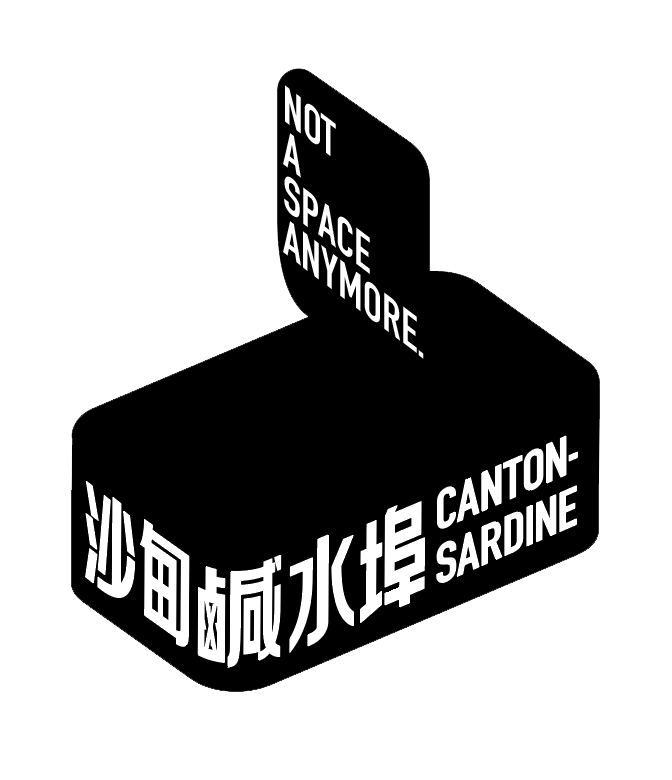
Title: The Saboteur
Artist: Wang Ningde
Curator: Zheng Ziyu
Date: April 6 to May 31, 2024
Opening Reception: Saturday April 6, 3-6pm
Wang Ningde describes himself as “The Saboteur.” Though his creations originate in photography, he consistently strives to break the inherent definitions and boundaries of the medium. Ningde’s series titled No Name intricately weaves together photographs he took of graffiti, isolating the painted strokes and layering them with images of conflict he sourced from the internet. Through this collage, he mimics a raw and expressive painting texture, blurring the lines between delicacy and coarseness, clarity and obscurity, narrative and abstraction, destruction and reconstruction, and illusion and reality.
In the context of art history, the strokes in painting have often been used to carry the spirit of revolution and rebellion, as in, for example, the impressionist paintings of the nineteenth century. The invention of photography, on the other hand, was predominantly organized around challenging the conventions of realist painting. As such, Ningde’s work represents an experimental exploration of the fundamental essence of both painting and photography. It serves to deconstruct the two mediums, pushing the viewer to reconsider their own assumptions and expectations of painting and photography. The novelty and anxiety stemming from the uncertainty of these works aptly resonates with the contemporary art context today.
The Saboteur is the artist’s inaugural solo exhibition in Canada. This exhibition is curated by Dr. Zheng Ziyu, an internationally acclaimed curator of photography and an associated researcher at Sun Yat-sen University in Guangzhou, China. This exhibition is also part of Capture Photography Festival 2024 selected exhibition program.

No Name / No. 1
299 x 450 cm (large edition),199 x 300 cm (small edition)
pigment inkjet print on archival acid free cotton paper
Courtesy of artist Wang Ningde, 2015
About the Artist
Wang Ningde (b. 1972) currently lives and works in Beijing. He graduated from the Lu Xun Academy of Fine Arts in Liaoning Province, China, in 1995, and then moved south to Guangdong Province. After working as a photojournalist in Guangzhou for a decade, he returned north to live and work in Beijing, developing a significant body of work investigating memory and dreams using photography as a medium. In particular, his *Some Days* series, which explores the difficulties of reconciling the past and present in today’s China, has gained international acclaim. Wang’s work has been exhibited at ARoS Aarhus Art Museum (Denmark, 2020), National Gallery of Victoria (Australia, 2019), Fort Mason Festival Pavilion (USA, 2017), Bryce Wolkowitz Gallery (USA, 2018), Städtische Galerie (Germany, 2017), Kunstkraftwerk Leipzig (Germany, 2016), Museum Folkwang (Germany, 2016), Paramount Pictures Studios (USA, 2015), Alessandria Photo Biennale (Italy, 2011), Galerie Paris-Beijing, Paris (France, 2010), Limn Gallery (USA, 2007), The Red Mansion Foundation, London (UK, 2006), and other institutions.
About the Curator
Dr. Zheng Ziyu (b. 1985) is currently an associate researcher at the School of Communication and Design, Sun Yat-sen University. He is dedicated to the study of visual communication, contemporary photography, and curatorial practices. He has curated exhibitions for various art institutions including Hubei Art Museum, Art Museum of Guangzhou Academy of Fine Arts, Art Museum of Shenzhen University, Jimei-Arles International Photo Festival, and Xie Gallery. He has been nominated as an outstanding photography curator in China.

Yucho Chow’s Photo Studio
170 x 150 cm
pigment inkjet print on archival acid free cotton paper
Courtesy of artist Wang Ningde, 2024
Yucho Chow was the first Chinese-Canadian photographer in early 20th-century Vancouver. By 1906, he inaugurated his studio at 68 West Hastings Street. That was a period characterized by egregious racism, with pervasive discrimination against the Chinese community. Yucho Chow’s studio operated within such a climate. White tailors and barbers declined service to the Sikh community, yet Chow extended a warm welcome to its members. Against this backdrop, he also served Black, Chinese, Indian, Indigenous, Ukrainian, and Polish immigrants from Eastern Europe. Within his studio, Chow catered to all, irrespective of their status as celebrities, affluent individuals, or the less privileged. No one faced rejection based on skin color, class, or creed.
Community historian Catherine Clement painstakingly unearthed Chow’s extant photographs, dedicating a decade to reclaim his lost works. This endeavor culminated in exhibitions and the publication in 2019 of a book entitled “Chinatown Through a Wide Lens: The Hidden Photographs of Yucho Chow.”
Leveraging these preserved photographs, Wang, was also a commercial photographer, recreates a backdrop from Yucho Chow’s studio. Individuals of diverse races and faiths congregated here, momentarily setting aside their disparities and antagonisms beneath the camera’s flash, endeavoring to present their best selves. Wang Ningde depicted this illusory microcosm he crafted utilizing his unique methodology, paying homage to Yucho Chow and the ethos of inclusivity and peace he epitomized.
The exhibition’s curator, Dr. Zheng Ziyu, opined, “Wang Ningde’s imaginative amalgamation, rooted in historical image fragments, resurrects a once-prominent Chinese photo studio space in Vancouver. Every prop, every detail has graced the family albums of disparate individuals, transcending racial disparities, skin colors, and social classes. This ostensibly authentic yet surreal tableau serves as the scaffold of history cloaked in the fabric of the contemporary world. Though vacant and desolate, it harbors reminiscences of Canada’s past racial segregation and marginalization.”

